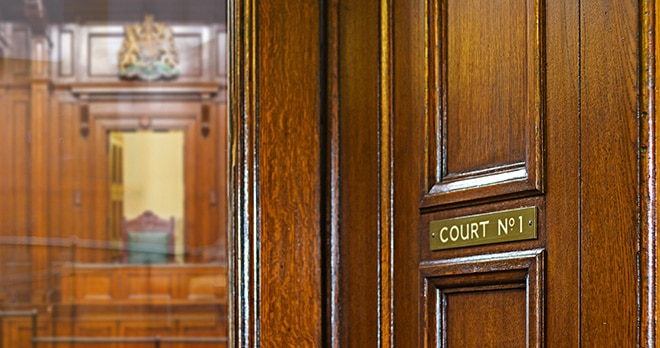What you need to know about the clinical lead jailed for withholding evidence

Sophie Bennett was sadly only 19 years old when she took her own life at a specialist care facility, called Lancaster Lodge, in Richmond in 2016. An inquest into her death found that neglect at the home had contributed to her death. Duncan Lawrence, a ‘Clinical Lead’ at the care home and key witness for the inquest failed to attend or give crucial evidence about Sophie’s death.
On 30 October, in what is thought to be the first prosecution of its kind, Duncan Lawrence was convicted under the Coroners and Justice Act 2009 and sentenced to 4 months in prison.
Why was Duncan Lawrence prosecuted?
Lancaster Lodge was a specialist care home for individuals with mental illnesses, where Sophie had been a resident since 2015. The home was treating her due to diagnoses of Bipolar Disorder, Social Anxiety and Atypical Autism.
Duncan Lawrence, the ‘Clinical Lead’ during her time there, had spearheaded immense change at the care home. This included suggesting and implementing a new care regime in the lead up to Sophie Bennet’s death, making him a key witness at the inquest. At the conclusion of the inquest, in fact, the jury found that the new care regime had contributed to Sophie’s death.
Unfortunately, despite his involvement in the case and having been summoned by the coroner, Duncan Lawrence continually failed to attend court. The coroner therefore fined him £650 and he was eventually charged with ‘withholding evidence in relation to a coroner’s inquest’.
Why is it an important prosecution?
Inquests are intended as an inquiry to establish the facts around how a person died (as well as who they were, when they died and where they died).
In order to establish these facts it is key that those who were in positions of leadership as well as those who were in contact with the person who died are properly called upon to provide statements and, where appropriate, give evidence at court. Thankfully, most professionals when called upon in inquests provide the evidence that is requested by the coroner.
However, this is a clear message to witnesses at inquests that their refusal to engage with the process will be taken seriously and can have consequences – both financial and the loss of liberty.
What does this mean for future witnesses?
The decision to prosecute Mr Lawrence for his failure to attend court and to answer questions demonstrates how important witness evidence can be in these circumstances. However, witnesses at inquests are not suddenly under a new pressure to answer questions for fear of otherwise facing time in jail.
Instead, this instance stresses the importance of adhering to a coroner’s summoning order, in order to ensure that a coroner can obtain all the evidence to come to a safe conclusion at the end of the inquest.